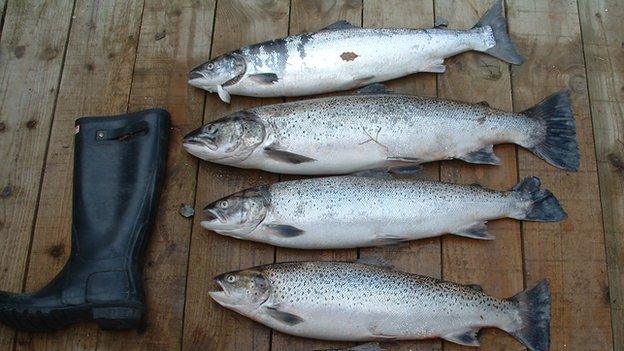Fish poaching operation could have been going on 'for years'
- Published
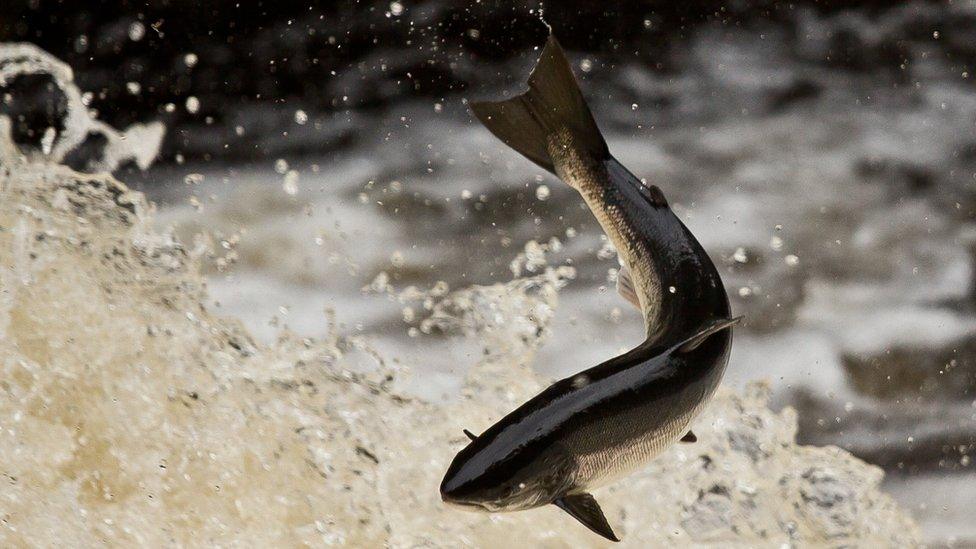
A fish poaching enterprise thought to have been going on for years has been uncovered by police
An "unprecedented" fish poaching enterprise has been uncovered on the River Teifi that is thought to have going on for years.
The operation targeting salmon and sewin has so far led to one arrest and warrants being issued to search seven homes.
Dyfed-Powys Police said the "large-scale" operation was uncovered after nets and dead fish were found in May.
That led to a number of people being questioned by enforcement officers.
It comes at a time when fish stocks are in serious decline in Welsh rivers.
Dyfed-Powys Police's Esther Davies said: "It's quite unusual - it's not something we come across very often, but it is a large-scale operation, and it's believed to have been going on for years.
"The number of fish in the river is dwindling and there needs to be a deterrent for people who partake in illegal fishing to stop them from continuing and from gaining financially."
The investigation is being carried out with Natural Resources Wales.
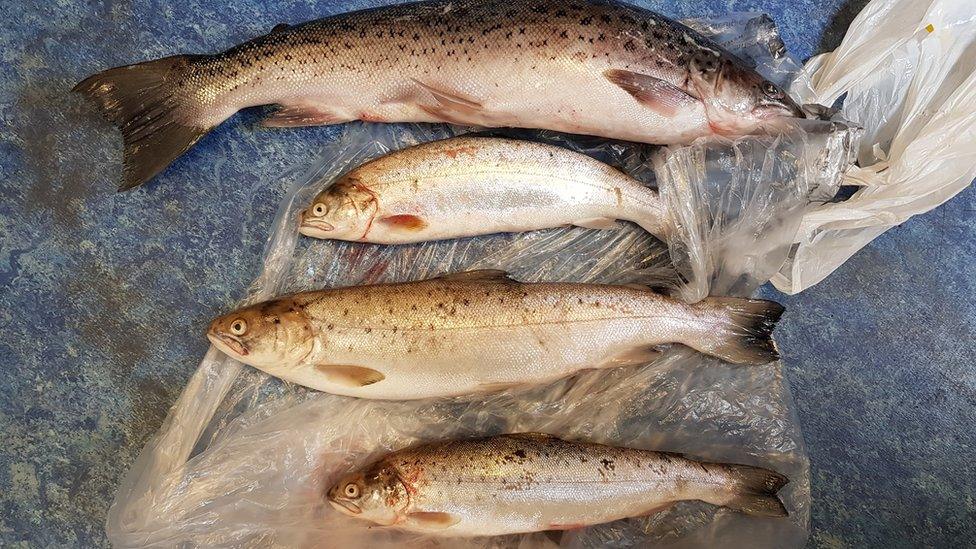
Dead fish and nets were spotted in the River Teifi
It said nets could capture large numbers of fish and falling fish numbers ensured a high price for salmon and sewin on the black market.
At 50 miles (79km), the River Teifi is one of Wales' longest rivers and a special area of conservation.
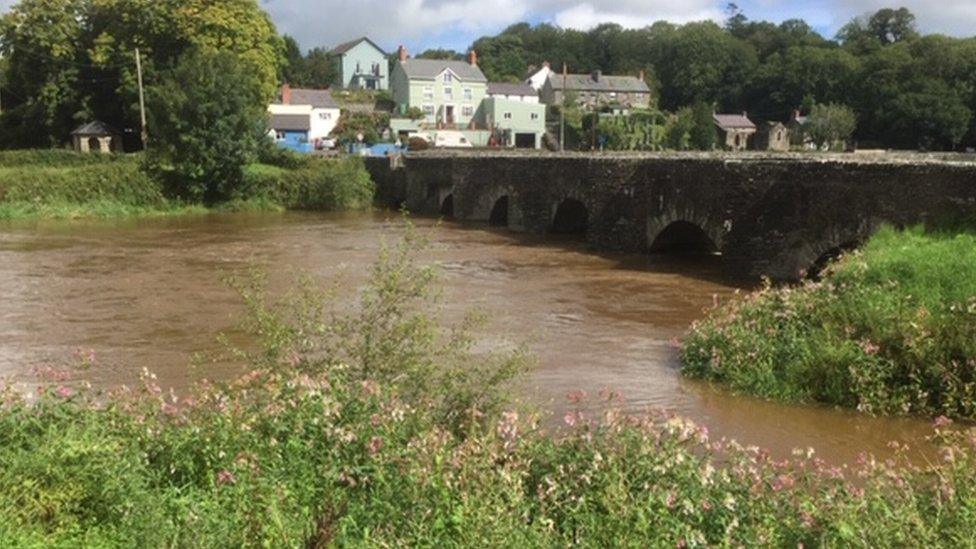
Fish are described as "at risk" in most of Wales' salmon rivers
In 21 of Wales' 23 salmon rivers - including the Teifi - the fish are described as "at risk."
Harriet Alvis of West Wales Rivers Trust said: "It's incredibly frustrating because it's easy to think if someone caught six fish in a night, it's only six fish.
"But those fish have somewhere between hundreds and tens of thousands of eggs in each individual, so what you're talking about is a huge impact on fish populations."
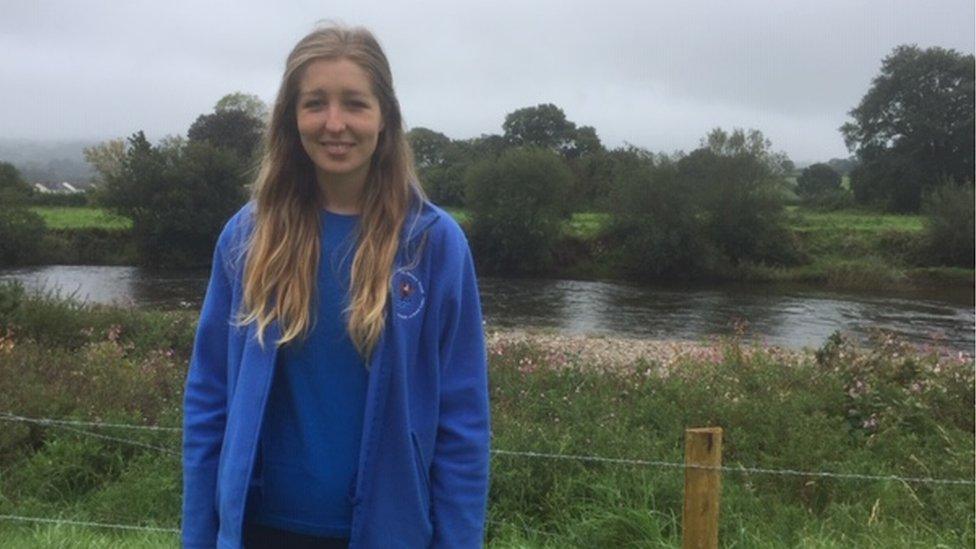
Harriet Alvis said there would come a time when there would not be enough fish to breed
She said the problem was "critical".
"Unless we do something now, then we'll be at a point where there won't be enough fish to breed."
- Published1 August 2020
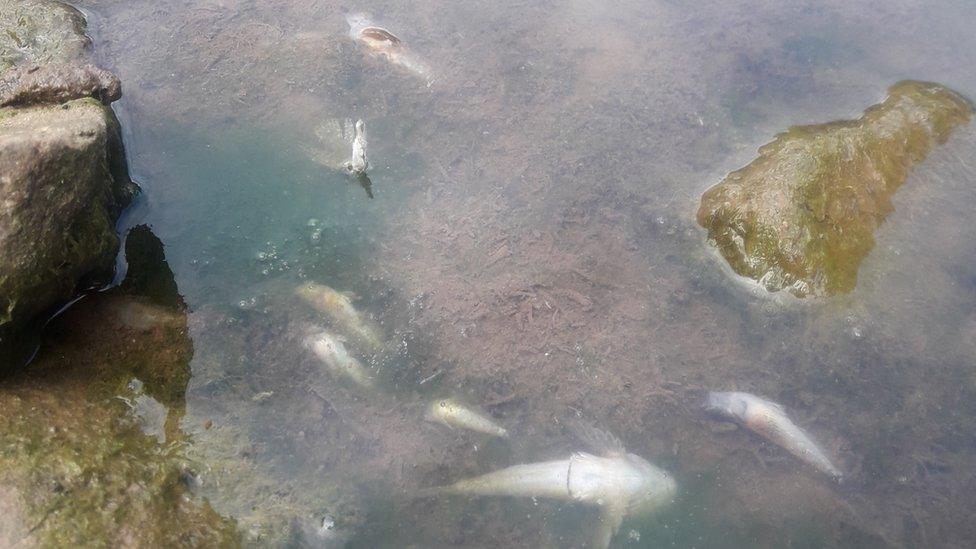
- Published14 August 2014
